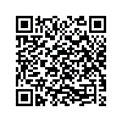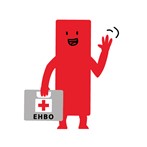Sunshine in abundance, take good care of yourself and others

Alert phase Heat action plan
The Royal Meteorological Institute (RMI) has predicted high temperatures for the next few days that could pose serious health risks. Everyone is advised to take extra precautions, both for yourself and for vulnerable people around you: the elderly, the (chronically) ill and young children. After all, they are most at risk of health problems.

Heat in the elderly
The (post)summer brings hot temperatures, and for the elderly, this heat can be a health threat. We like to teach you how to recognize the symptoms that may occur, how to administer first aid for heat-related illnesses, but mainly how to prevent them. Here are some guidelines to help the elderly and yourself during periods of heat.
What ailments occur and how to act?
- Dehydration: Elderly people often have a decreased sense of thirst and may have difficulty drinking enough.
→ Ensure that elderly people drink small amounts of water regularly to prevent dehydration. Encourage them to also eat foods high in fluids, such as fruits and vegetables.
- Heat stroke: In a hot environment, there is a chance that heat production becomes too high compared to heat output. Symptoms include excessive sweating, dizziness, headaches and muscle or abdominal cramps.
→ Take him or her to a cool place to rest. Remove any overly warm clothing and cool the victim with a fan or wet cloths on the neck, under the armpits or groin. Dipping hands and feet in cold water can also be a remedy. What is best not to do is administer antipyretics. Fever has a different cause, so that medication is out of place here.
- Faint: This can be recognized when a person feels dizzy, sees black spots or is nauseated. It may be accompanied by feeling warm despite the skin feeling cold and clammy.
→ If someone faints, lay him or her flat on the floor and lift their legs slightly if necessary. Make sure the person gets plenty of fresh air and loosen clothing that may make breathing difficult. Cold compresses or a damp cloth on the forehead can provide cooling. Continue to monitor breathing. Alert the Emergency Room 112 if the victim is not awake after 2 minutes.
How to prevent these ailments?
Preventing a heat-related problem is, of course, the best way to protect the elderly and yourself. This can be done thanks to some simple tips:
- Keep an eye on the elderly in your neighborhood. Visit regularly, bring groceries and help them keep the house cool. After all, it is appropriate to look for the coolest place in the house on hot days. If necessary, create a cool environment by using fans combined with opening windows for air circulation.
- Limit physical activity during the hottest hours of the day and schedule activities in the cooler morning or evening hours. And as mentioned earlier, it is important to stay hydrated, so drinking plenty of water is the message. Make sure older people drink more than usual in high temperatures. Preferably small amounts regularly and avoid alcohol and/or drug use as well as caffeinated beverages.
- Encourage them to wear light, breathable clothing and protect themselves from direct sun exposure on the head with hats or umbrellas. Provide shaded areas outdoors and avoid exposure to direct sunlight during the hottest hours of the day.
What if things do go wrong?
If you should experience problems despite the previous tips, it is important to recognize the following symptoms early on:
- Increasing headache, dizziness and possibly fainting.
- Cramping of muscles, with possible convulsions.
- Consciousness problems, such as confusion, drowsiness or even unconsciousness.
- Victim fails to drink without vomiting
- The body temperature is above 39°C.
In these cases, be sure to consult the Emergency Room 112.
Learn more?
Download our app or take a course at Belgian Red Cross-Flanders.


